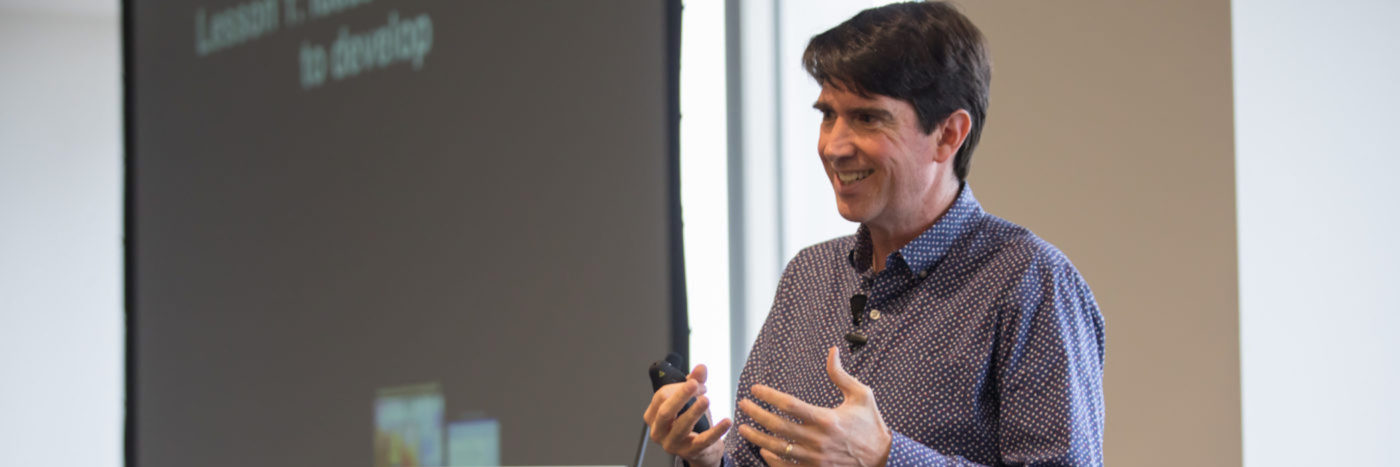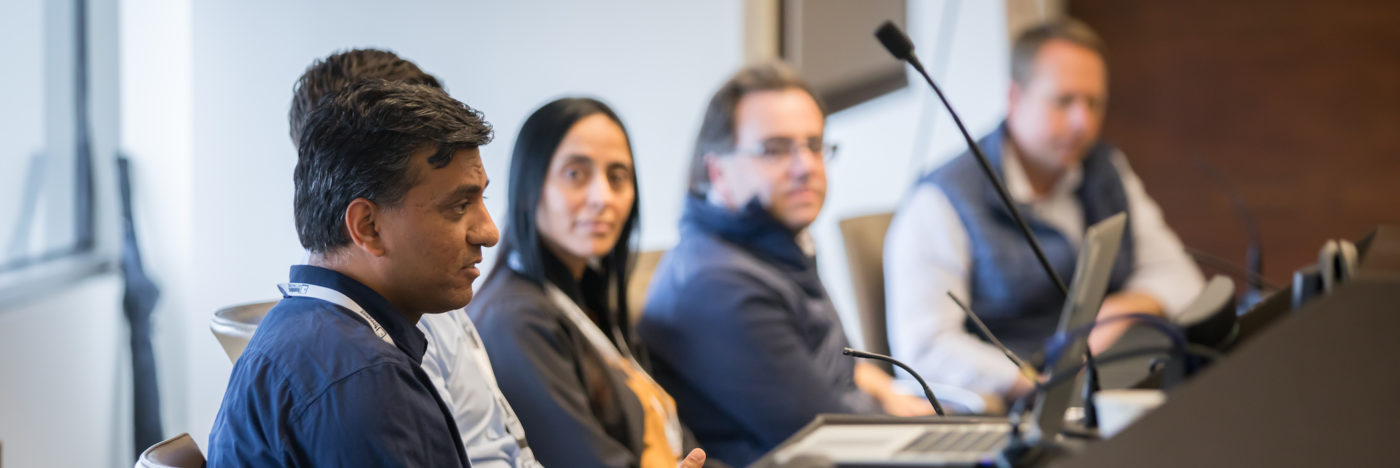
There’s nothing like creating your own company. I believe, as many do, that a startup is the biggest change agent in the world.
Why is it then, that so many people struggle to actually get a business off the ground? The reason is because it’s easy enough for them to dream, but it takes actual nose-to-the-grindstone work for that dream to be cemented into reality.
Nolan Bushnell, the founder of Atari, Inc. said that, “the critical ingredient is getting off your butt and doing something. It’s as simple as that. A lot of people have ideas, but there are few who decide to do something about them now. Not tomorrow. Not next week. But today. The true entrepreneur is a doer, not a dreamer.”
The Focus Flaw
A lot of business and entrepreneurship books will tell you that the most important thing is “focus, focus, focus!”. And while having a focus is good, it doesn’t mean anything if you don’t have the action to go along with it. A lot of people are focused on their dreams, but they never actually build a foundation for it.
And while I’d like to say that my foray into entrepreneurship went flawlessly, the truth is, I didn’t really know what I was doing. I was in my mid-40s and I had never started a company before. So, not knowing any better, I helped start three companies — at the same time. While many claim to be a serial entrepreneur, I suppose you might say that I’m a parallel entrepreneur. While I wouldn’t recommend this craziness to anyone, in the end, it all worked out OK for me, and I guess this just goes to show:
Everyone has their own unique path to success
That doesn’t mean it’s going to be easy to find your path, but the fact that you’re reading this right now shows that you’ve already taken the first step. Grab your best idea, get to work, and start pushing it forward into the world.
I’ll show you exactly how this happened for me with Siri, but first, we have to go back to 2008.
Humble Beginnings
Back in 2008, I co-founded a little startup that created a free app called Siri. Siri means “secret” in Swahili, and we had this whole “secret” motif going on. In fact, our first domain name was Stealth-Company.com and we made it difficult for anyone to find out who we were or what we were doing. There was no contact information: no phone number and no address.
And yet, in 2010, two weeks after launching our app into the App Store, the phone rings in our office — and it’s Steve Jobs. “Hey, whatcha doing? Wanna come over to my house tomorrow?”. With our “secret” address, we asked: “How did you get this number?”
When we first met Steve, it was clear right from the start that he wanted to buy our company. And as flattered as we were, we initially turned him down because we weren’t looking to sell, and we weren’t sure he really understood what our big plans were for Siri. But about a month later, his persistence paid off and he convinced us that he does indeed get the big picture, and that we could change the world more with Apple than as an independent company. So we joined Apple, developed Siri for the iPhone, and the rest is history.
Now, anyone reading this is going to think that this sounds like every entrepreneur’s dream — launch an app, Steve Jobs calls, makes a compelling offer and understands your vision, and BOOM. Sold.
The “Overnight Success” that was Anything But Overnight.
It reads like an overnight success story. Two months from launch to becoming an integral part of Apple. But the truth is that our success with Siri didn’t happen overnight.
It took about two years to start this company, raise funding, grow the team to 20+ people, and solve all the hard technical and design problems that resulted in our game-changing Siri app. But, the story is much longer than just two years — before the startup, I worked for five years on the largest AI project ever funded by the US government: SRI’s CALO project, which stands for Cognitive Assistant that Learns and Organizes. And before that, back in 1999, I was working on an “Internet of Things” version of ‘Siri’ to which you could talk to from your car, your TV, and even your refrigerator.
In fact, the very first prototype of Siri was made back in 1993, before I ever saw a web browser — web browsers didn’t even exist until a year later. Through my prototype, I realized that in the future, we would want to access software on other computers, and we needed a way to discover those services and interact with them. I imagined that everyone would have a personal assistant, to which we could say “I want to know this” or “I want to do that”. The assistant would break my request into sub-tasks, route them to the right services around the world, aggregate the responses, interact with the user, learn from those interactions, and help the user get the job done.
So in my conception, Siri was my version of the Internet, before hyperlinks and web documents. Now twenty-five years later, I feel this is still a compelling vision, and one I continue to work on today, through Viv Labs, my next company that I sold to Samsung. I never thought it would take this long to fully realize my vision, so my advice is that when you launch a company, pick something you’re truly passionate about, because it may take longer to see your actions come to fruition than you thought. But if you are persistent, eventually they will, and the journey is rewarding along the way.
Study Trends and Triggers
It’s not enough to have the right idea and compelling technology, timing is an integral part of success. If I would have launched Siri any time before we did, I’m convinced it would have been too early and the company would have failed. So how do you know when is the moment to launch a company on a topic? I use the notion of “trends” and “triggers” to help me predict the future and time my companies.
In 2004, by my counting the 10th anniversary of the Web, I looked forward into the future and put together a presentation with ten predictions for the next ten years of the Internet. By analyzing the trends spring up around me, I was able to determine what my beliefs were — which things were real, which were just hype.
It turns out that the three best predictions I made back in 2004 ended up being directly tied to the three companies I helped start.
- I said that social networks would go mainstream, a crazy thing to say back before MySpace, Facebook, Twitter, etc. And I helped start Change.org, a social network for social activism, today the world’s largest petition platform with more than a quarter billion members.
- I said that data would move to the “cloud” (although I didn’t call it that back then), where machine learning algorithms would now have enough aggregated data to drive new insights. My company Sentient was a large-scale machine learning platform that developed ML applications for finance, health care, agriculture, retail, and e-commerce.
- And I said that with all of the data and services in the cloud, there would be new innovations at the user experience layer, and this led to the creation of Siri.
Armed with my beliefs backed by my market analysis, when I saw the iPhone come out, I knew that it would be successful back when all of the pundits were saying only a phone company could make something as complex as a phone, and Apple was just a music player company. This was the trigger I was waiting for along my user experience trend line, and this belief enabled me to accurately predict the future. I knew that in two years, every telco and handset manufacturer would be scrambling to compete with Apple. I thought that they would desperately need something like Siri, which would give them an interface technology that shortened the time-to-task for a mobile user to get something done. So with this two year goal in mind, we started the company, creating something we knew the world would soon need. The irony, of course, is that Apple ended up buying Siri, not the telecom companies to whom we were going to give the arms to compete with Apple…
The Bottom Line on Business Success
In conclusion, I think that entrepreneurship is the best way to change the world. Think of a big idea and go out and make it happen. It’s going to take you the same amount of time no matter if you work on something big or small, so why not work on something that impacts the lives of millions or even billions of people?
Don’t be afraid to try a lot of different things, listen to what users are telling you, course-correct, and keep moving ahead. Not everyday is going to be sunshine and rainbows. Some days might be a struggle, but when you’ve got a big vision followed by concerted action, no matter how far-fetched it might be, your continued persistence and intelligence will persevere and it will all be worth it in the end.






